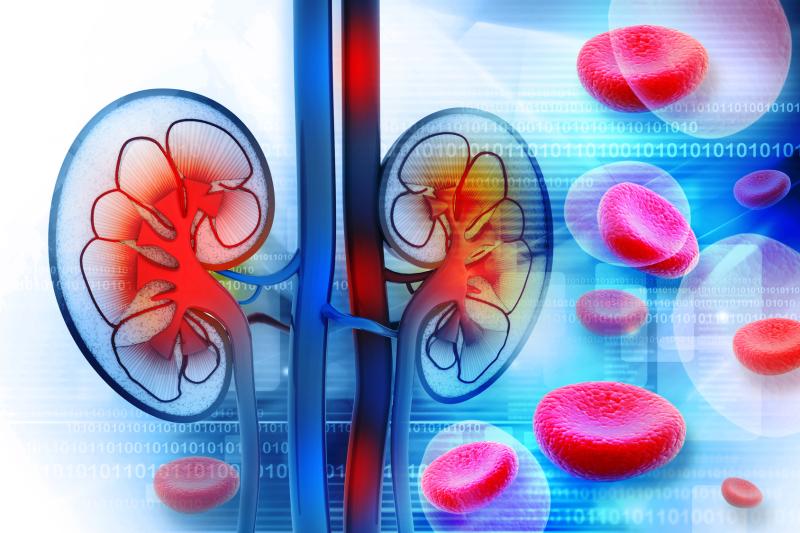
Drugs used to modify blood glucose and lipid levels appear to help slow the progression of chronic kidney disease (CKD), suggesting that glycaemic control and lipid regulation may improve renal function in patients with moderate CKD, according to a systematic review and meta-analysis.
Researchers searched multiple online databases for randomized controlled trials evaluating the effect of antihypertensives, lipid-modifying drugs, glycaemic control drugs or sodium bicarbonate vs placebo on the following outcomes: renal function, proteinuria, adverse events, initiation of maintenance dialysis or kidney transplantation, cardiovascular (CV) events, CV mortality and all-cause mortality.
The meta-analysis included 35 trials and more than 51,000 patients aged ≥40 years with CKD stages 3 and/or 4, with at least 2 years of follow-up. Data were limited, and heterogeneity varied.
Pooled data showed that final renal function (estimated glomerular filtration rate) was higher by 6 percent in patients taking glucose-lowering drugs (ratio of means [ROM], 1.06, 95 percent CI, 1.02–1.10; I2, 0 percent; low GRADE confidence) and by 4 percent in those on lipid-modifying drugs (ROM, 1.04, 1.00–1.08; I2, 88 percent; very low GRADE confidence). Renal function did not significantly change in patients taking antihypertensive drugs.
Furthermore, treatment with lipid-modifying drugs produced a 36-percent reduction in cardiovascular disease and 26-percent decrease in all-cause mortality.
Researchers pointed out that the findings are tentative, given the limited data and high heterogeneity for many of the analyses. Therefore, additional studies evaluating the effects of drugs on the progression in CKD are needed.